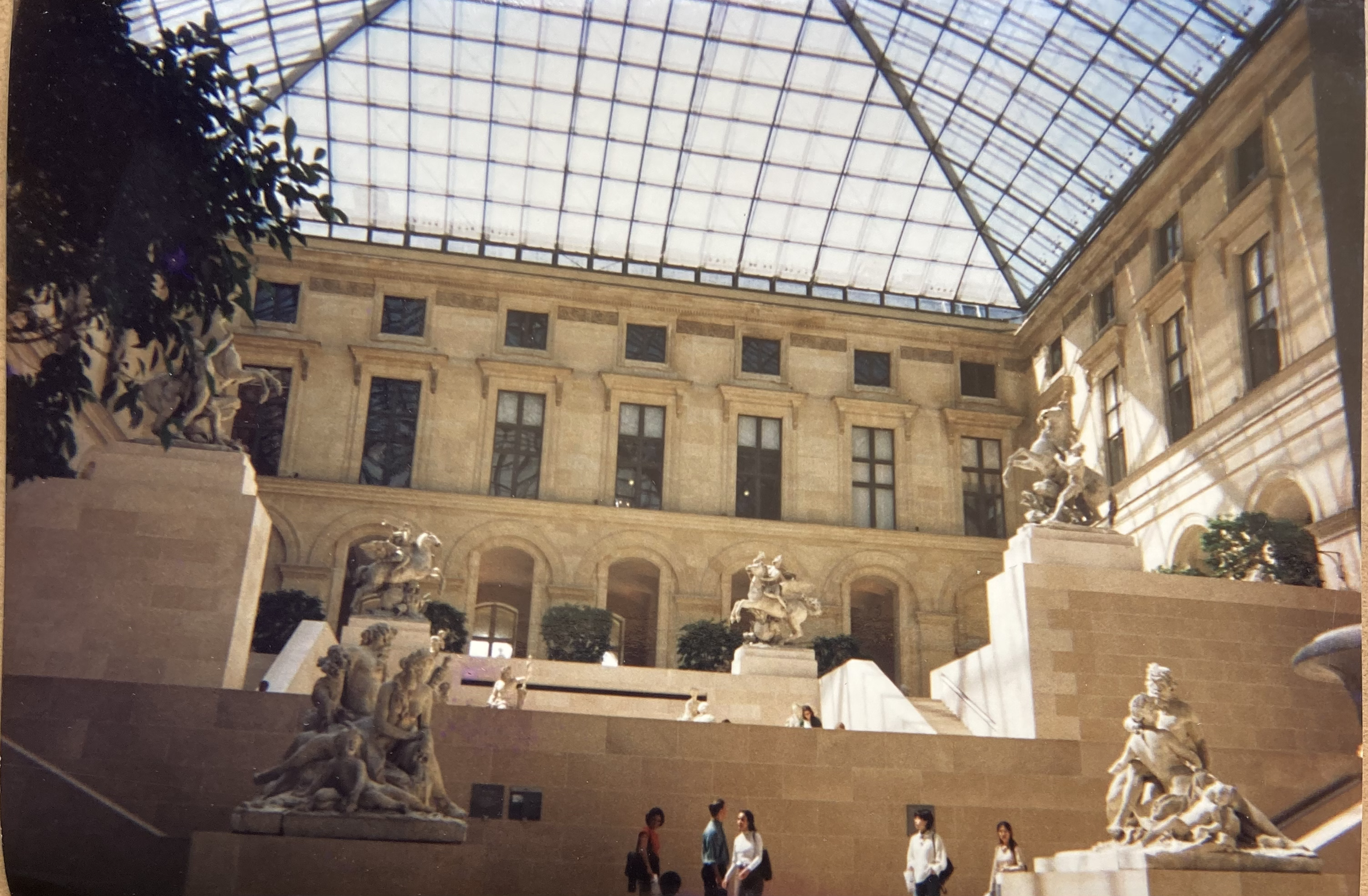
Louvre Museum at night
France
France is the largest nation in Western Europe.
Geography: Mainland France extends from the Mediterranean Sea to the English Channel and the North Sea. Its borders touch Belgium and Germany in the north; the Atlantic Ocean in the west; the Pyrenees Mountains and Spain in the south. It is referred to as L’Hexagone because of the shape of its territory. It is the most visited country in the world. France's official language is French.
History: Before the Roman conquest in the 1st century BC, France was inhabited by Celtic tribes known as Gauls. The Frankish tribes unified much of what is now modern France. Charlemagne, in the 9th century, expanded the Frankish Empire significantly. Feudalism dominated, with regional lords holding power.
On July 14, 1789, in an event symbolizing the start of the French Revolution, citizens of Paris stormed the Bastille prison and released the seven prisoners inside. Since then, Bastille Day has been celebrated annually on July 14. Bastille Day commemorates the storming of the Bastille and symbolizes the birth of modern France and the values of liberty, equality, and fraternity.
The 19th and 20th centuries saw France undergo industrialization, colonial expansion, two World Wars (where France played a major role) and decolonization. Charles de Gaulle became the first president of the Fifth Republic in January 1959.
Dec 8, 2024: Notre-Dame Cathedral in Paris is one of France's most famous landmarks and a masterpiece of Gothic architecture. On the evening of April 15, 2019, a devastating fire engulfed the cathedral, destroying its wooden roof and toppling its iconic 93-meter spire. Despite the extensive damage, many of the cathedral's priceless artifacts and relics were saved, preserving its historical and religious significance.
The cathedral has faced challenges in the past, including damage during the French Revolution and potential threats during World War II when stained-glass windows were removed to protect them from bombings. After five years of meticulous restoration following the 2019 fire, Notre-Dame reopened to the public in December 2024, showcasing its rebuilt spire and roof while maintaining its intricate interiors. The reopening marked a significant moment of celebration and reflection for Paris and the global community.
Authors: Many famous French novels were written in the 19th century by authors such as Victor Hugo, Alexandre Dumas and Jules Verne. They wrote popular novels like The Three Musketeers, Twenty Thousand Leagues Under the Sea and The Hunchback of Notre-Dame. The metric system was invented by French scientists during the French revolution.
In 1923, Le Corbusier collected his essays from L'Esprit Nouveau and published his first and most influential book, Towards an Architecture. Did You Know that Rabindranath Tagore visited France In 1920? During his visit, he engaged with various intellectuals, artists and writers, contributing to cultural exchanges between India and France.
Birds: The Mediterranean coastline is a stopover of millions of migrating African birds, including flamingos, vultures, egrets, and bee-eaters.
Animals: Lowland forests are home to wild boar, while the woodlands of the Alps and Pyrenees provide refuge for rare chamois (Rupicapra rupicapra) antelope, ibex (Capra ibex), bears, and alpine hares.
Sports: The Tour de France cycling race in July is one of the best-known sporting events. Soccer (football) is another popular sport in France. The French Open is a major tennis tournament held over two weeks at the Stade Roland Garros. France will host the Summer Olympics in 2024.
Cuisine: French cuisine has influenced the style of cooking throughout Europe, and its chefs work in restaurants throughout the world. France is one of the world's leading wine producers, and the wine industry is particularly sensitive to climate variations.
Your photos of nature, landscape, sunrise/sunset, travel, guide, tree/plants and beaches are welcome.
Climate change can lead to increased variability in weather conditions, making it challenging for farmers to predict and plan their planting and harvesting cycles.
Home > Resources for learning > France



